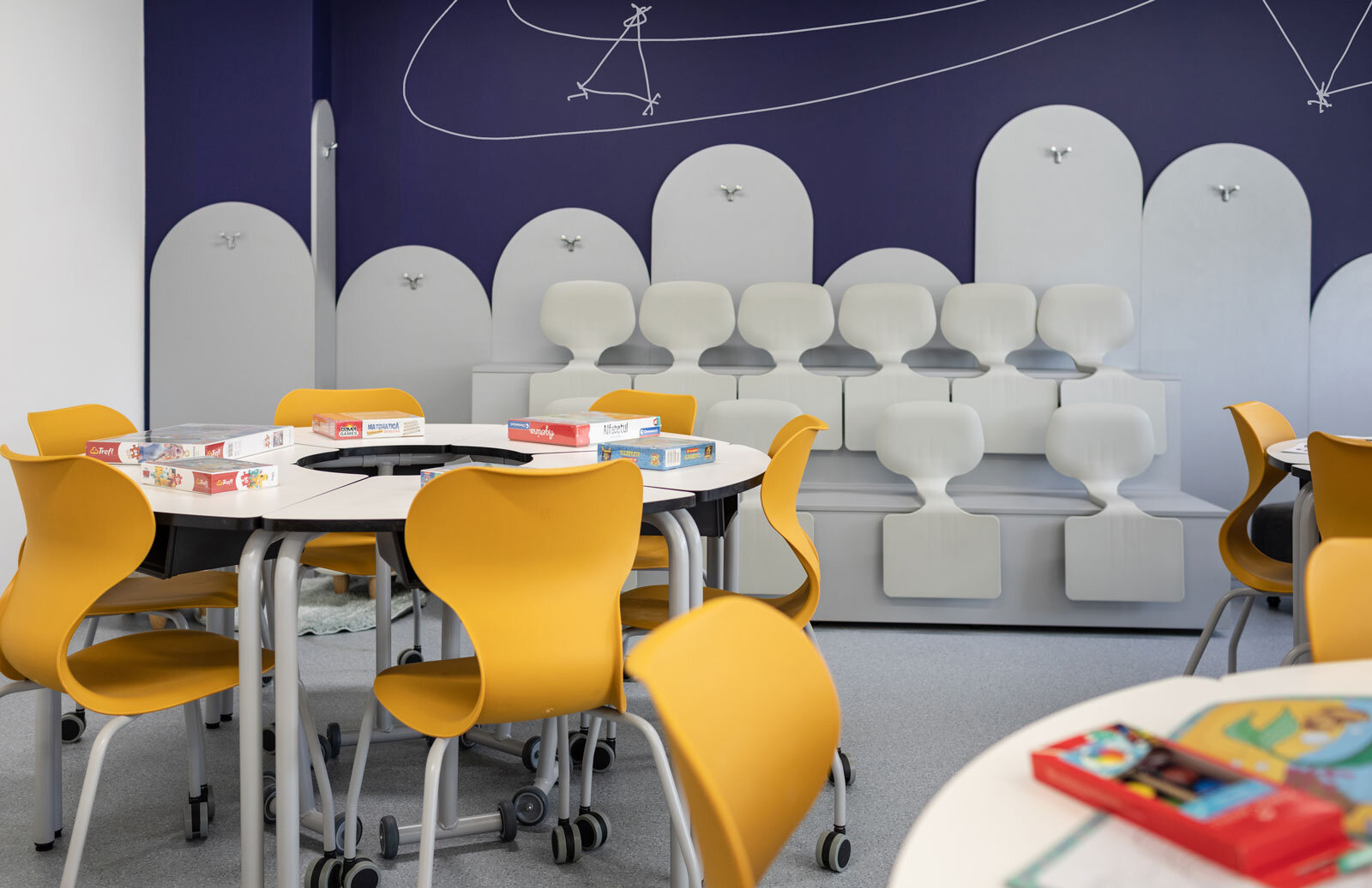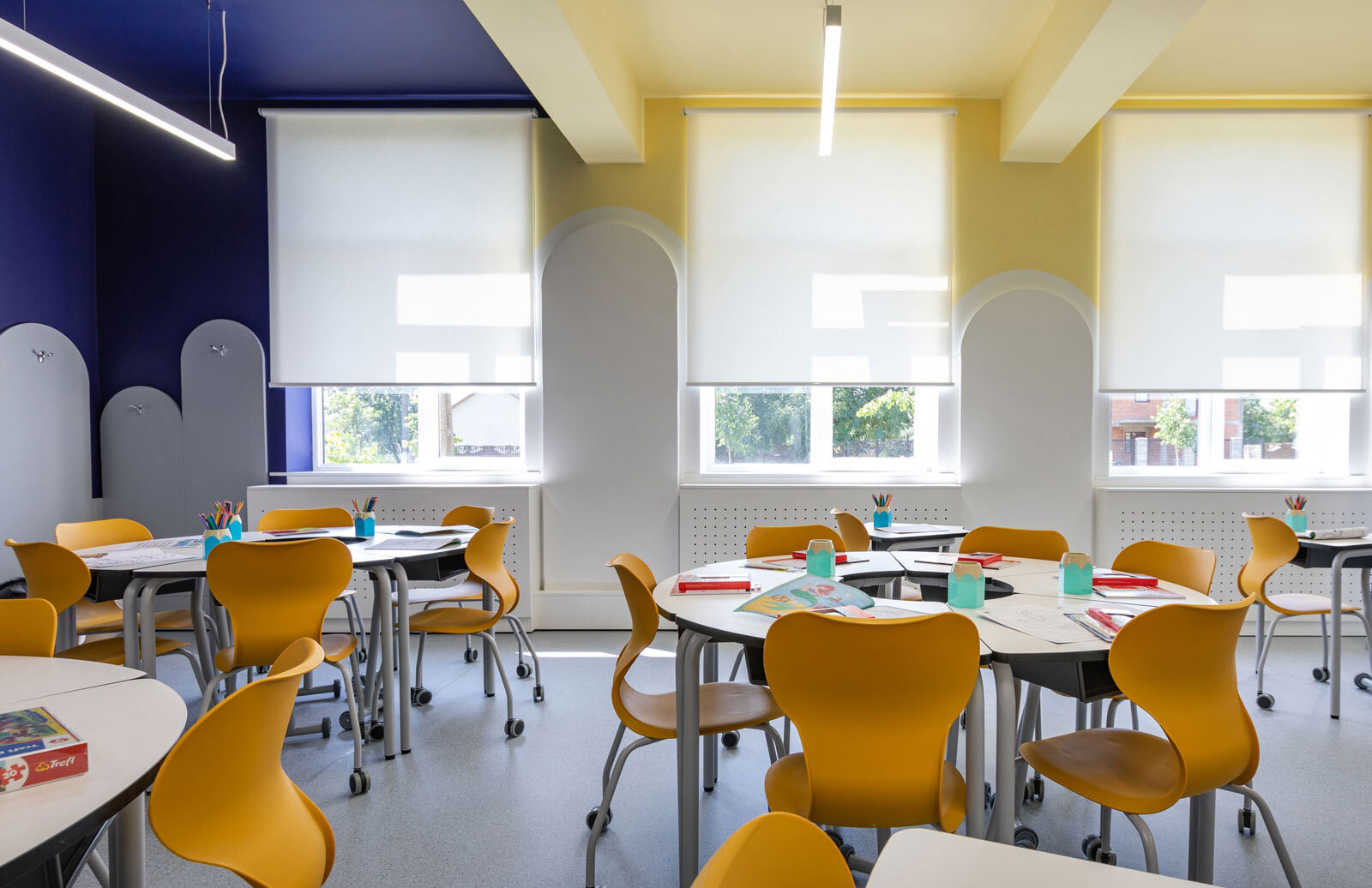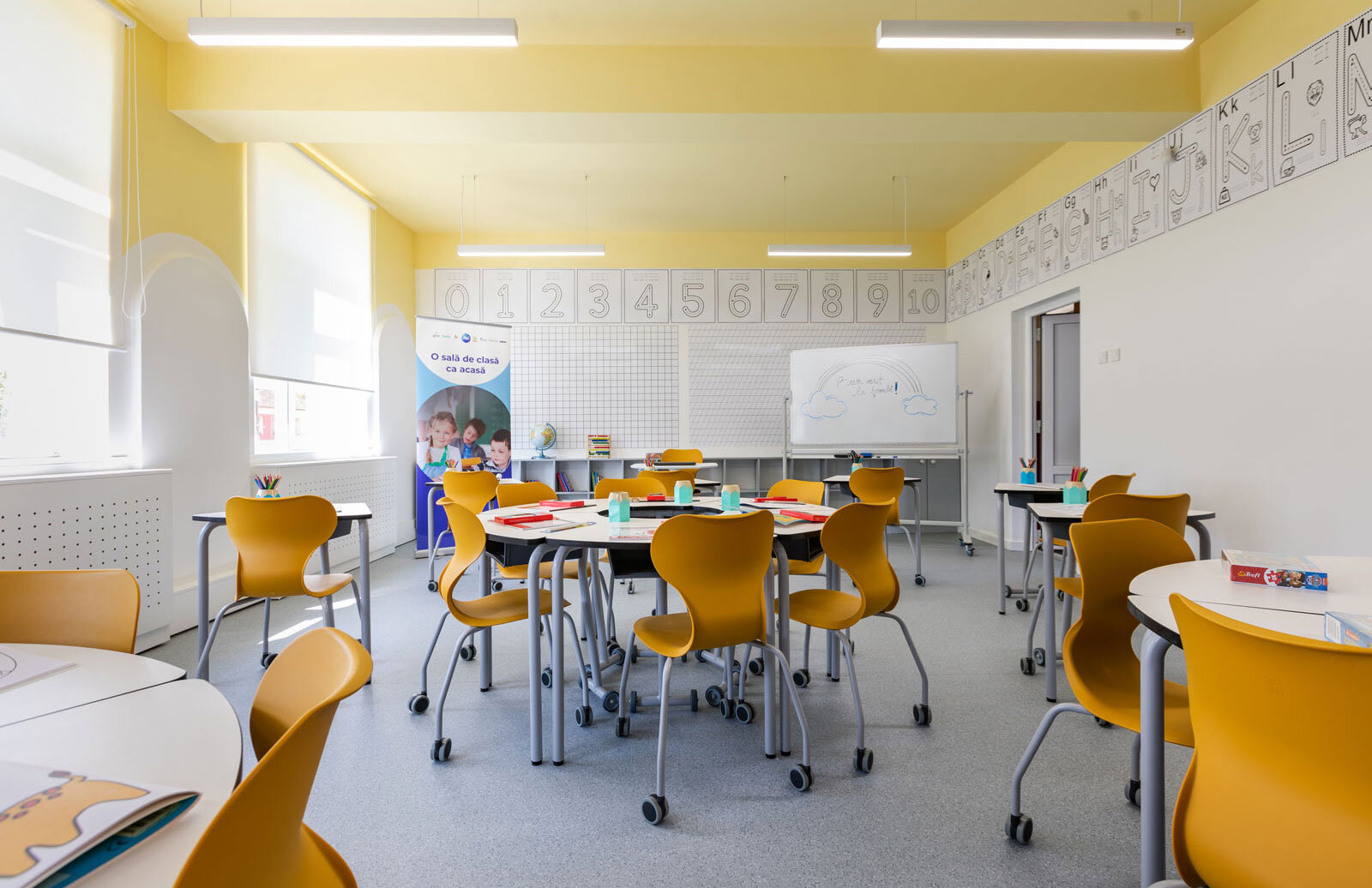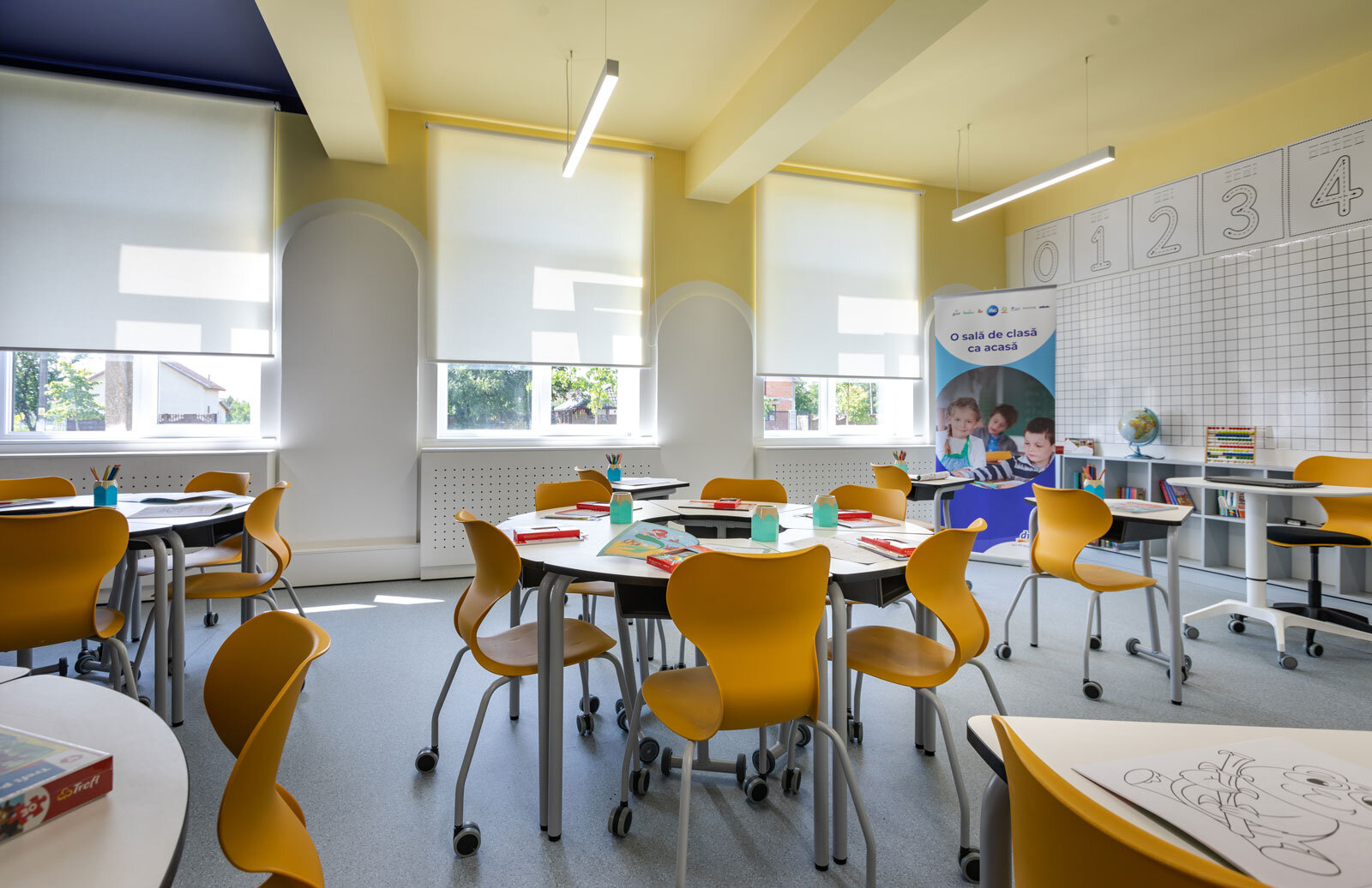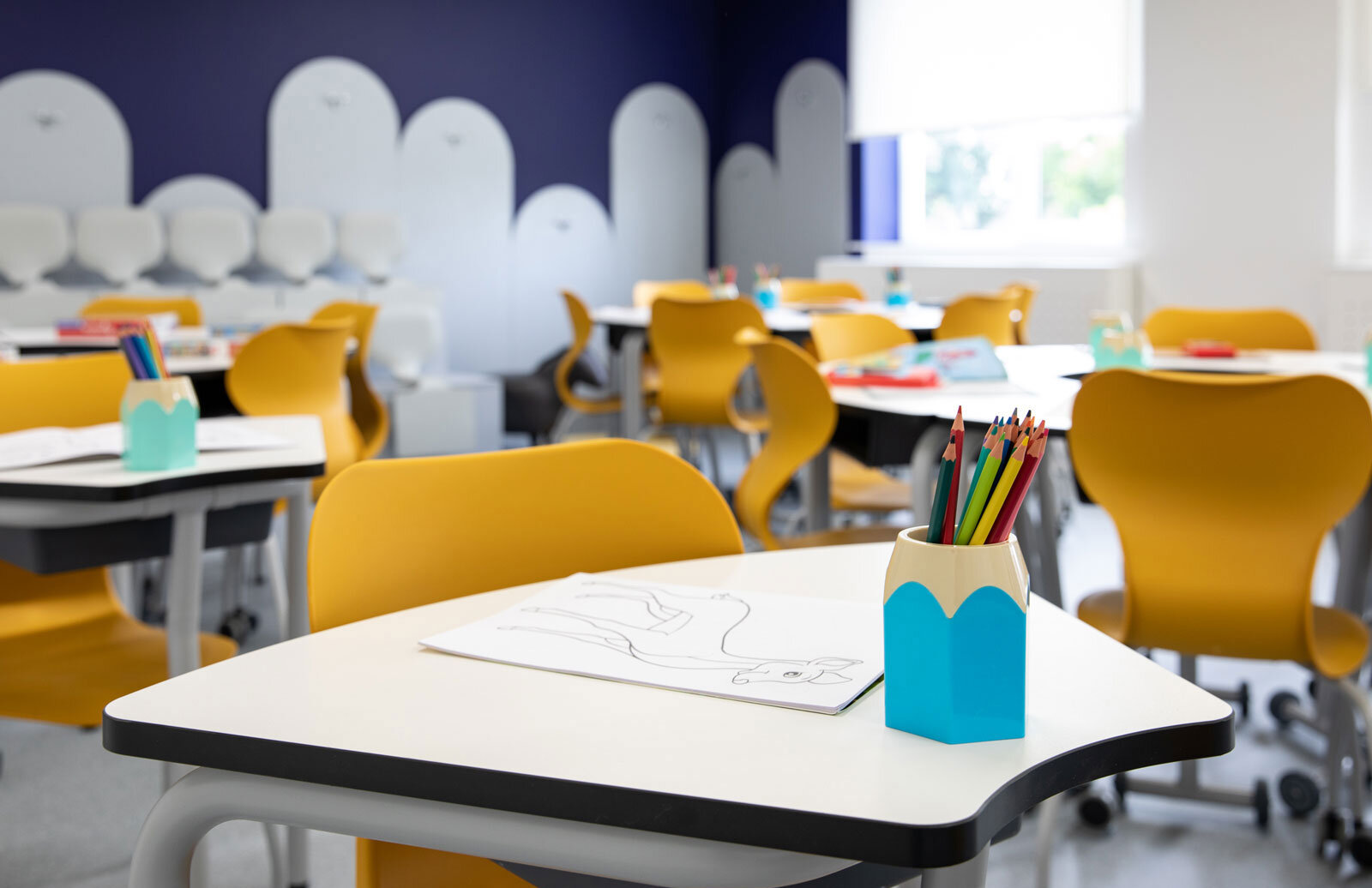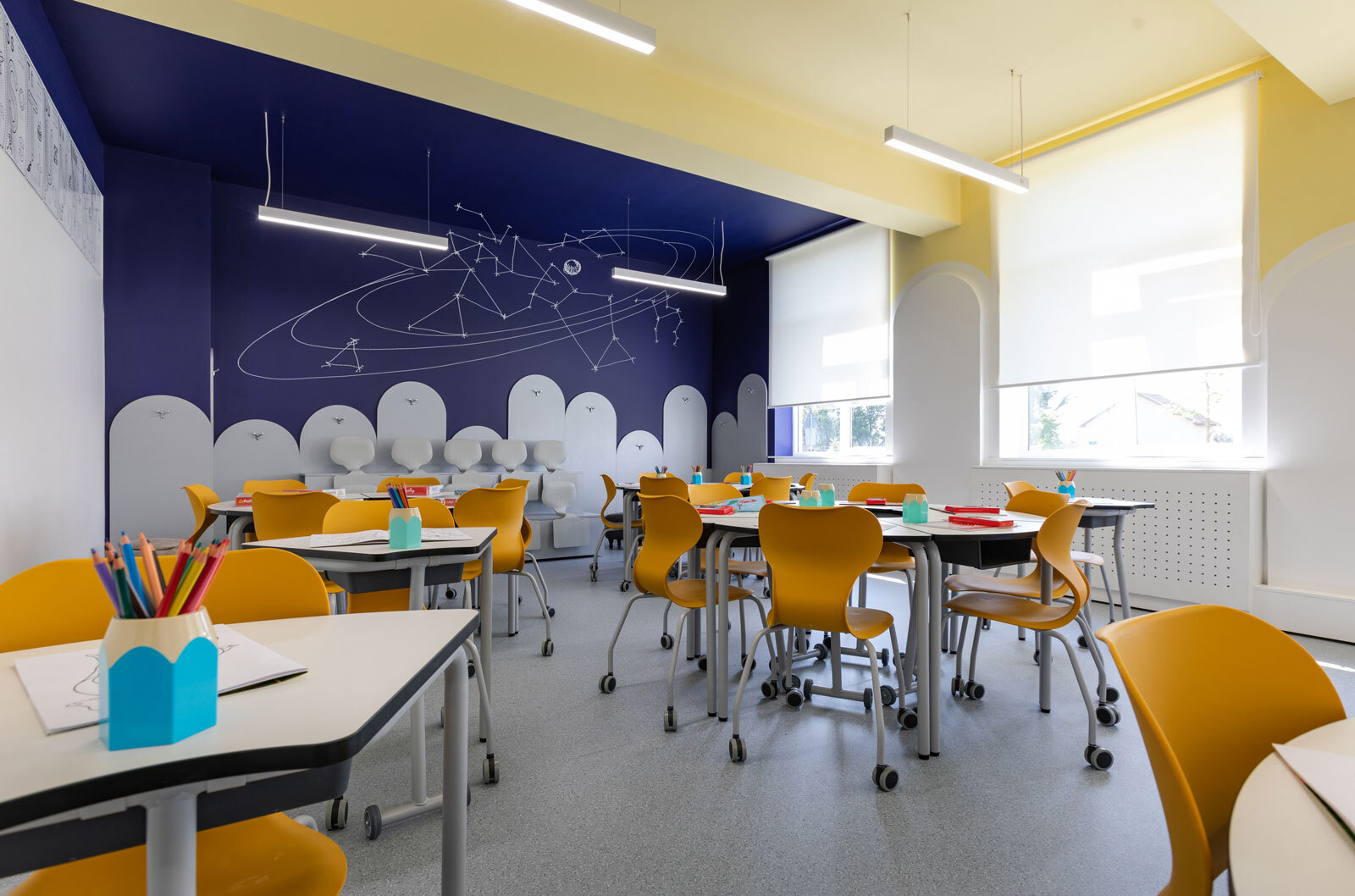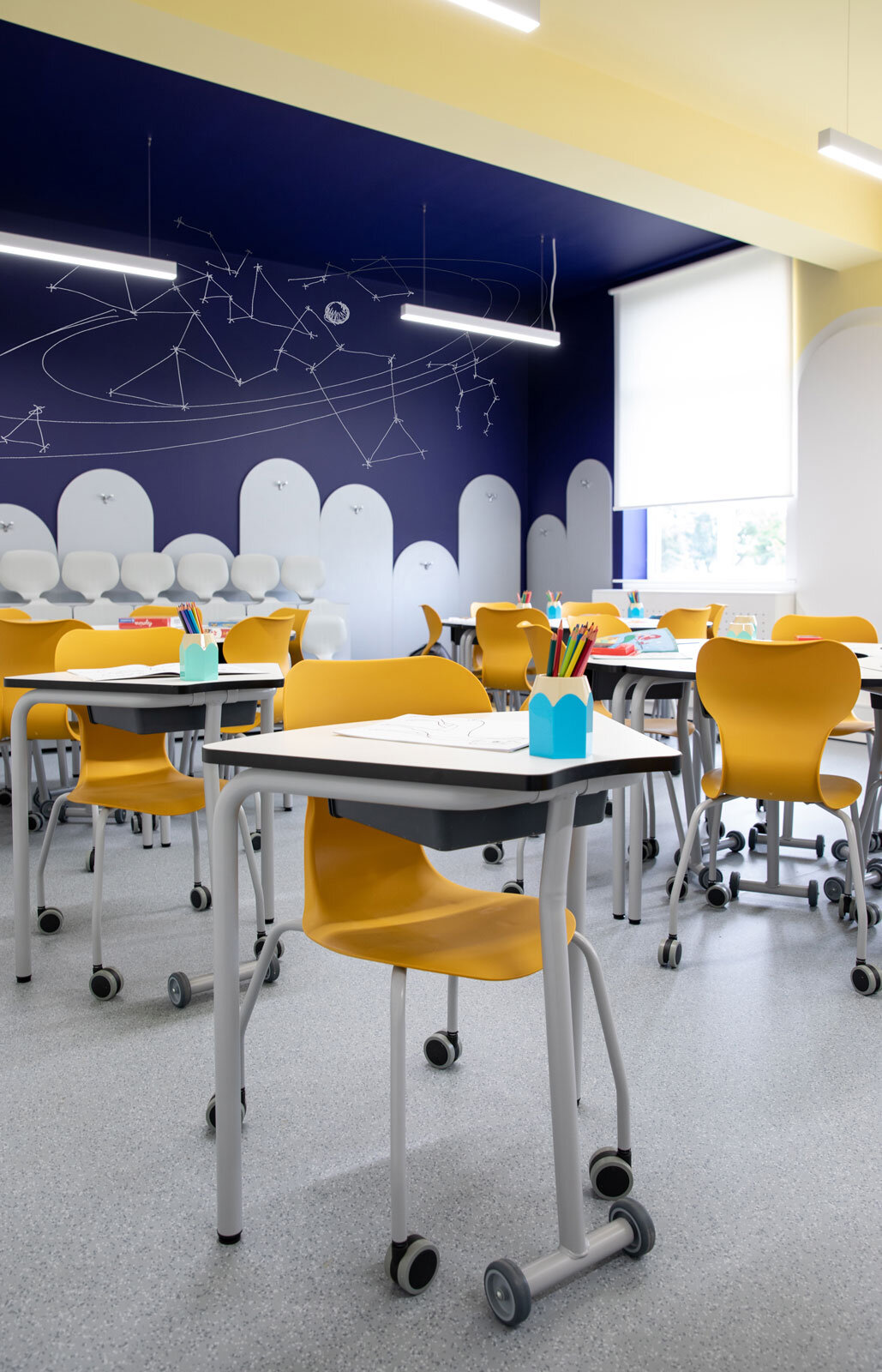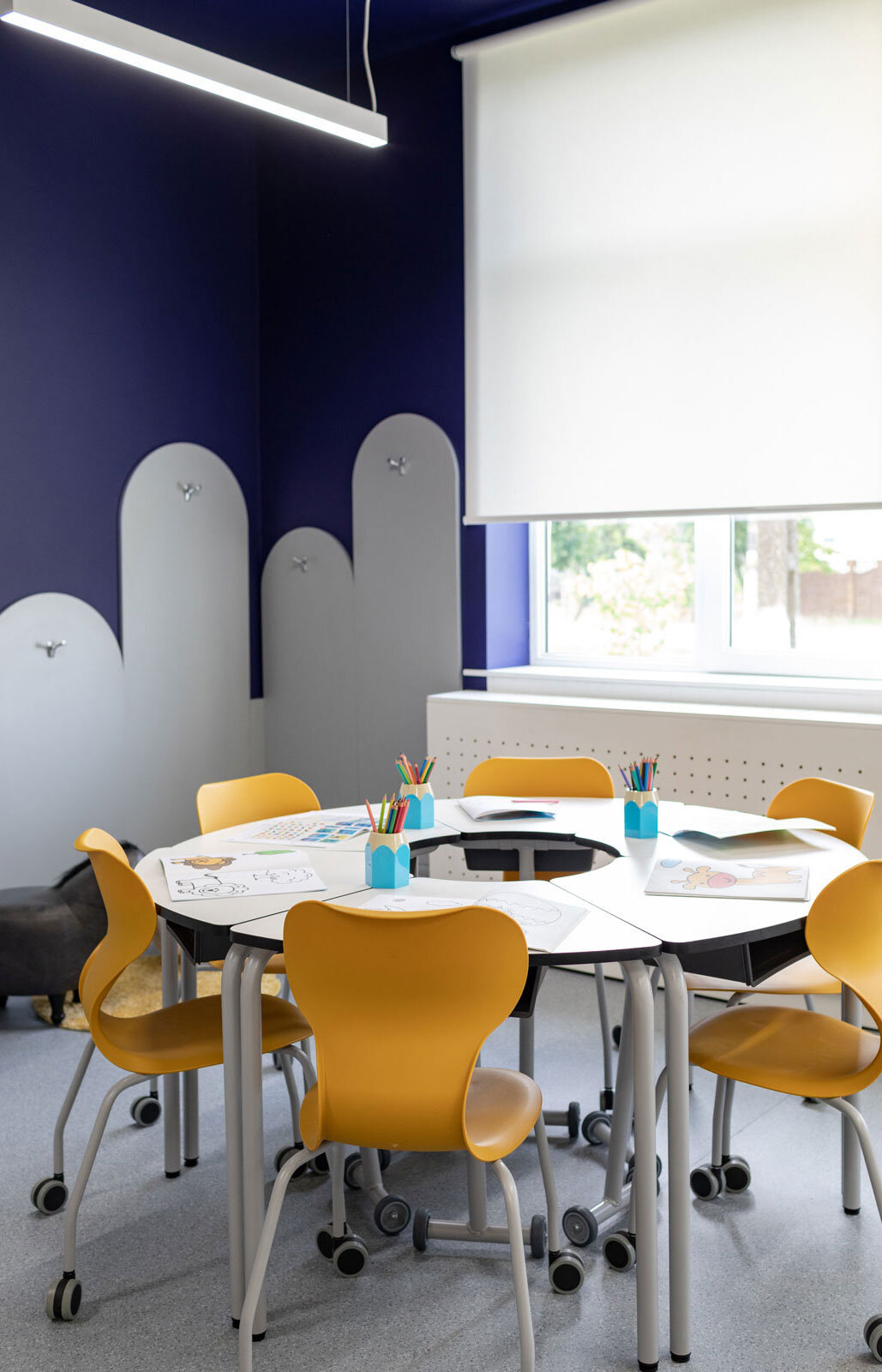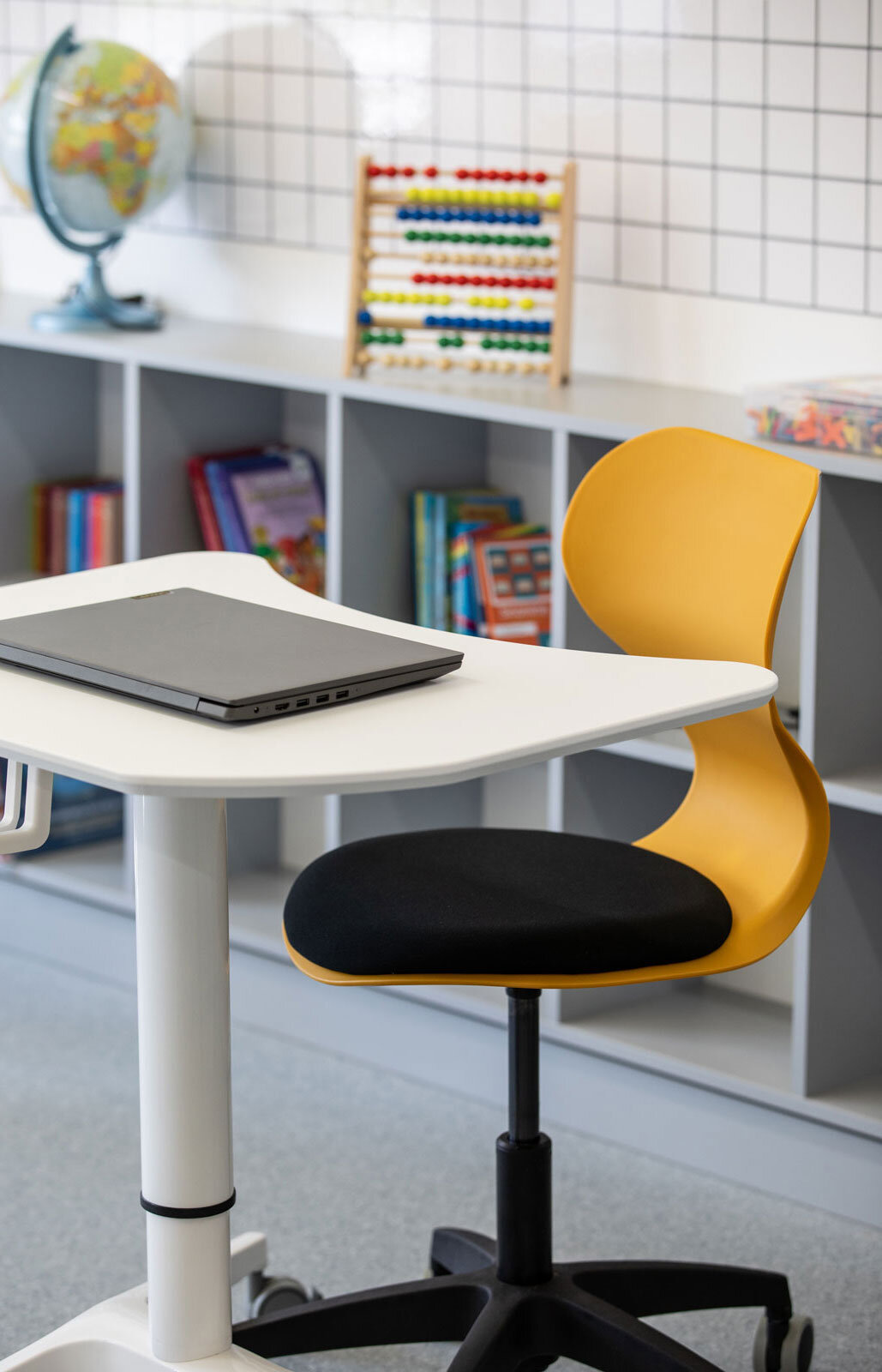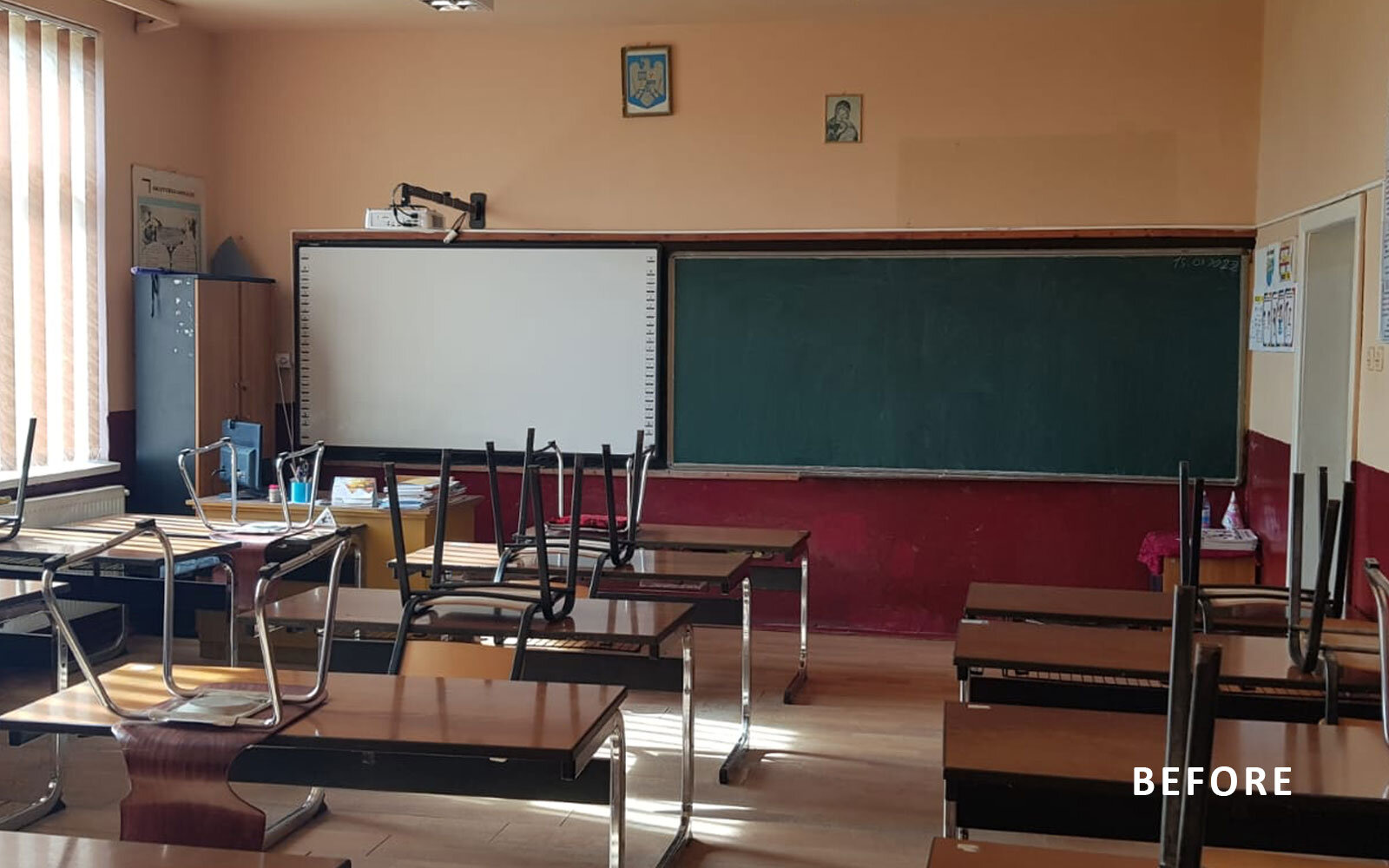
A classroom like home (V)
Authors’ Comment
The children’s joy together with the impact that the non-traditional classroom has on the long-term development process are two main objectives for the project, from concept level to implementation.
What sets apart the interior design of this classroom is the spatial strategy that allows simultaneous learning for different aged students – from 6 to 10 year olds. An apparently unfavourable status quo due to lack of space, teaching staff and sometimes even students to fill a full class, was thus turned into a great learning and development opportunity focused on collaboration and exposure to the learning process for students of different ages.
The number of students in a class can be variable, which is why teaching and learning needs are different from class to class. Thus, in order to provide maximum spatial flexibility, three concepts were taken into account:
1. The multidirectional orientation of the classroom
A key element was to move away from the one-axis classroom typology, where the blackboard area is usually installed on one side and all desks are facing towards it. The design solution offered to this space was to maximise the communication surfaces as much as possible, so that a variety of activities can be carried out on three of the four interior walls of the classroom – from whiteboard surfaces that can be easily written on and erased, to personalised alphabet/vocabulary panels and exhibition-type surfaces, where ideas, works or activities can currently be pinned up. On top of this, the mobile magnetic board that can be easily moved to any part of the classroom brings added value and flexibility.
2. Furniture configuration
Given the multidirectional orientation of the classroom, adapting the furniture to this concept came almost as an immediate consequence. It is scientifically proven that offering students freedom of movement in the learning process leads to an increase in performance both socially and academically. Thanks to the ergonomic shape and castor equipment, the desks can be easily organised in just a few minutes in various geometries, encouraging individual work, working in pairs or as a class. The teachers’ desk is meant to be smart and ergonomic that alternates between sitting and standing postures, integrating perfectly into the classroom in a discreet and friendly way. All furniture has been carefully designed to be accessible to children in a comfortable way, taking into account the age-height ratio.
3. Fluid zoning of space
Because learning happens not only during classes but also during breaks, it was a good opportunity to intertwine the academic part with play. Thus, the classroom becomes a hybrid space where, in addition to the lessons, a relax, reading or play area has been provided – with seating steps, fluffy cushions, playful animal-shaped stools and soft carpets – an area where children can really feel comfortable like home.
The interior design of educational spaces has a great responsibility for its active contribution to the learning process. With this in mind, the project “A classroom like home” avoided excessive decorations and contrasting colours just for the sake of a cheerful space. Instead, we have chosen to be the promoters of educational spaces that provide students with freedom of expression and growth. The design of educational spaces tends to be one of the main supporters of students’ self-confidence, offering a variety of learning environments adapted to each personality type. The superpower of the classroom comes into play when each student can develop their own topics of interest and grow harmoniously as part of a community.
The classroom project is dedicated for class zero of the Secondary School in Com. Giera, Timis county and is part of the program “A classroom like home” developed by Procter & Gamble. Through this project, we contribute along P&G to establish a reference point in education, opening new doors to a universe of possibilities, ideas and freedom of thought.
- Lunet Flagship Store
- Irina Schrotter Shop
- Multifunctional space
- Global Records - Office
- MobileVet
- Aparterre
- The Edit
- Lunet Signature Store
- Wipro Offices Interior Design
- GT Lawyer's Office
- A classroom like home (V)
- Cora Urban
- CPI Property Group Offices Design
- Office spaces for Apa Nova București
- Headquarter RB+P
- Booking Holdings Inc. - Center of Excellence Bucharest
- Front Office Apa Nova
- Dermatology Esthetics Clinic
- DentalMed Luxury Dental Clinic - Primaverii
- Grohe HQ Romania
- Sevalia Medica Rheumatology and Medical Rehabilitation Clinic
